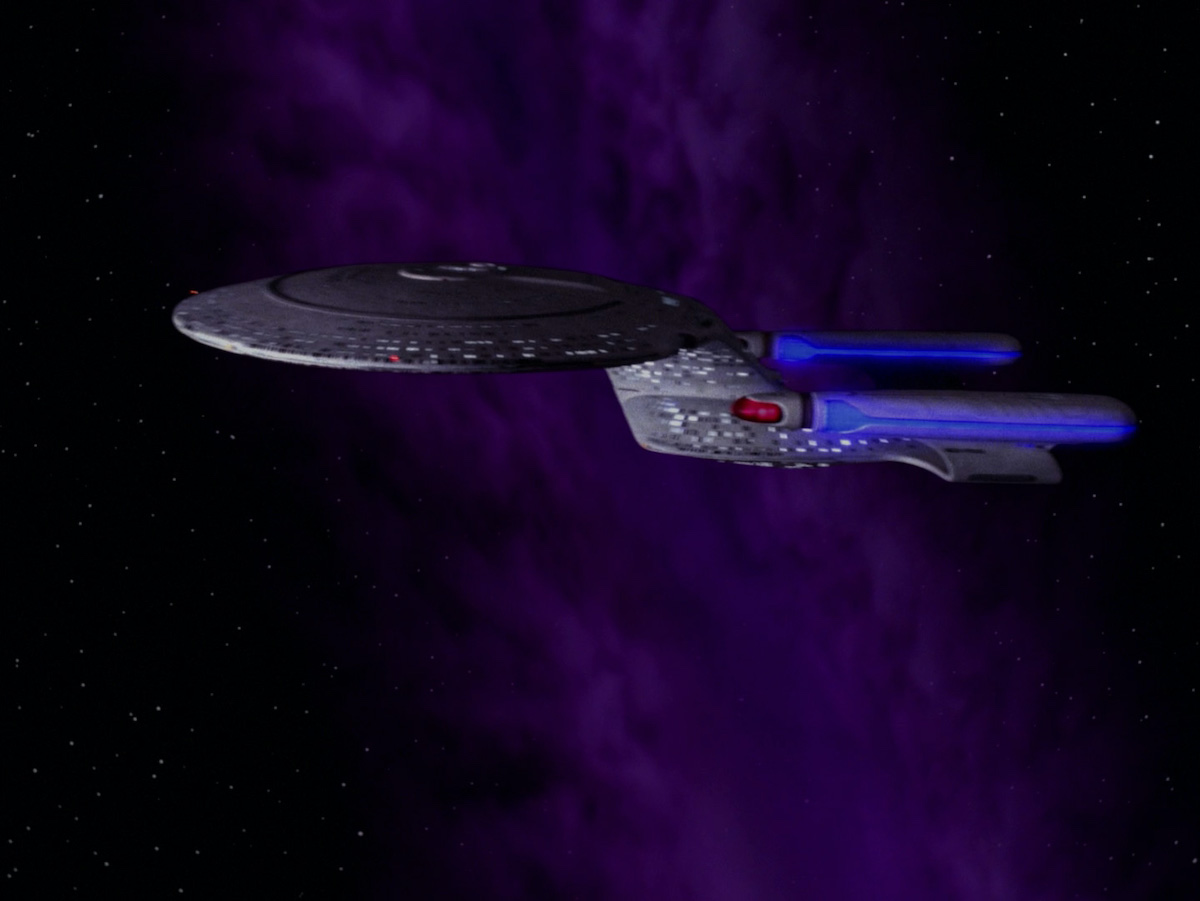“I look around me and all I see are surfaces without depth…!”
“The Loss” is an episode I quite disliked when it first aired, and then – when I grew up a bit – realized was actually a pretty clever piece of writing. Why did I dislike it? Well, because it was about Counselor Troi losing her empathic powers in an action-free encounter with a cloud of 2-dimensional life forms that are making a beeline for a cosmic string, and I was fifteen years old. And why do I like it now? Well, because I’m an adult now, and that’s awesome.
“The Loss” succeeds because it is, for the most part, the first episode of Star Trek: The Next Generation that takes Deanna completely seriously as a character. It takes her seriously as both a professional therapist, and as an empath – and then crashes those two parts of her life together by taking one of them away. There’s something really ugly about the show – about how Deanna reacts to losing her powers, and about how the crew unintentionally condescends to her in reaction – that I quite like. It doesn’t play like the usual run-of-the-mill crisis for a member of the Enterprise crew, because it basically transforms everyone into a varying degree of asshole, with Deanna as the Queen Asshole. Nobody’s on their best behaviour this time out – even Picard fumbles his way through a couple of anecdotes about heroic people with disabilities before Deanna tells him to shut the hell up. It’s a more than fair point about how the abled think about, and treat, the disabled.
And more specifically to our heroes, this ploy works because it opens up Deanna’s character considerably, and humanizes her in a way that simply hasn’t taken place previously. Will – runner up for Queen Asshole in the episode’s sweepstakes – is right on the money when he says that Deanna’s empathic abilities have given her a vaguely aristocratic relationship with the rest of the crew, as though she was somehow always in on a private joke that no one else could hear. With her powers gone, she’s forced to fumble around like everyone else for forty minutes, and the results are illuminating. As a writer’s room joke, too, enriching Deanna’s character – a character who could, till now, be called two-dimensional – by having her powers yanked by a species of two-dimensional beings, is kinda delicious. And yet it plays out nicely on a thematic level as well, as the episode bears on; Deanna likens herself to the two-dimensional beings’ existence as she interacts with friends who now have no more substance to her than projections on the holodeck.
(There’s a cunning idea there, that the episode doesn’t explore, but which forms the central theme of Solaris: all people are projections without depth. We embue the depth – and therefore don’t really know anyone. Enjoy those powers, Deanna.)
Four Enterprises out of five.

Blogging The Next Generation runs every Tuesday as I work my way through every episode of Star Trek: The Next Generation on blu-ray. Season Four is in stores now.
